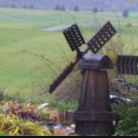
Inevitable change without and within, As time marches forth on its forever path. But what of our heart when the depth is exposed? Are we bitter in change or more gentle and kind?
Pruning is vital. It cleans out dead branches on a bush or tree. It clears out heavy overgrowth. Pruning is a necessary step for fruit trees and grapevines, enabling them to produce a bountiful crop of top-quality fruit. Pruning also helps plants put more energy into growing and showing off their abundance of gorgeous flowers.
For those unfamiliar with the process, pruning helps a plant maintain optimum health. While dead branches, or an excessive amount, choke out the sun from reaching the inner depths, pruning opens up the heart of a plant. Removing or trimming back branches allows the sun’s rays to reach into the heart of the plant in order to revitalize the entire plant. It may seem harsh when beginning drastic cuts; but, when the task is done, we have a much healthier plant.
Without pruning, any flowering or fruiting plant, vine or tree can revert to a more wild state, putting its energy into unnecessary overgrowth. With pruning, the focus is on nutrition, feeding and nurturing the plant so it produces the best flowers and fruit. Admittedly, I have failed to prune many plants over the years and have ended up with a messy overgrowth that is now a challenge of where to begin.
And so it is with us. We need pruning… of our thoughts, words and deeds… a pruning of our heart and soul. With the trimming away of unhealthy vices, we are more open and receptive to change… change which brings out the best in us. As Jesus said, “I am the true vine, and my Father is the gardener. He cuts off every branch in me that bears no fruit, while every branch that does bear fruit he prunes so that it will be even more fruitful.” (John 15:1-2) We need pruning to let the Son’s light enter the depths of our heart in order to revitalize us as we begin producing our fruit of the Spirit – “…love, joy, peace, forbearance, kindness, goodness, faithfulness, gentleness and self-control.” (Galatians 5:22)
We’re all branches in the tree of humanity, bearing fruit of various kinds. We each have something special to contribute to this world around us. Created unique, we’re endowed with individual gifts and talents. But, we often need pruning to clear away the destructive debris in our lives. We need pruning to allow the Son’s rays a chance to enter the depths of our heart… to cleanse and renew… to revitalize us… so that we can shine our fruit, our blessings, out into the world.
And since God made each of us a unique one-of-a-kind creation, it brings joy to share our special gifts with our family, friends, and others beyond our close circle. In so doing, we bless them in ways we can’t imagine, so that they in turn are encouraged to use their gifts to bless someone else.
The Pruning
Linda A. Roorda
He takes out his shears and sharpens the blades
Ready to trim overgrown chaos.
He eyes the tree, knows which branch must go,
Which limb needs space as he trims and shapes.
~
Decisions are made to remove dead growth
Prune overcrowding and bring in the sun.
Yet not unlike my life’s debris trimmed
When clutter is cleared, opened for the Son.
~
Bearing bad fruit shows a branch gone wild
And bearing none how stagnant we are,
What benefit then to remain untrimmed
For lack of growth cannot show God’s love.
~
But if we abide as a branch alive
Bearing our fruit for the world to see
The evidence speaks our soul’s depth of love
That we will prove the Father’s commands.
~
Abiding in love just as He loves us
No greater gift has one for another
For You, Lord, above have chosen us
That we may bear fruit in lasting tribute.
~
Inevitable change without and within
As time marches forth on its forever path
But what of our heart when the depth is exposed
Are we bitter in change or more gentle and kind?
~~
- Read more...
- 0 comments
- 233 views

